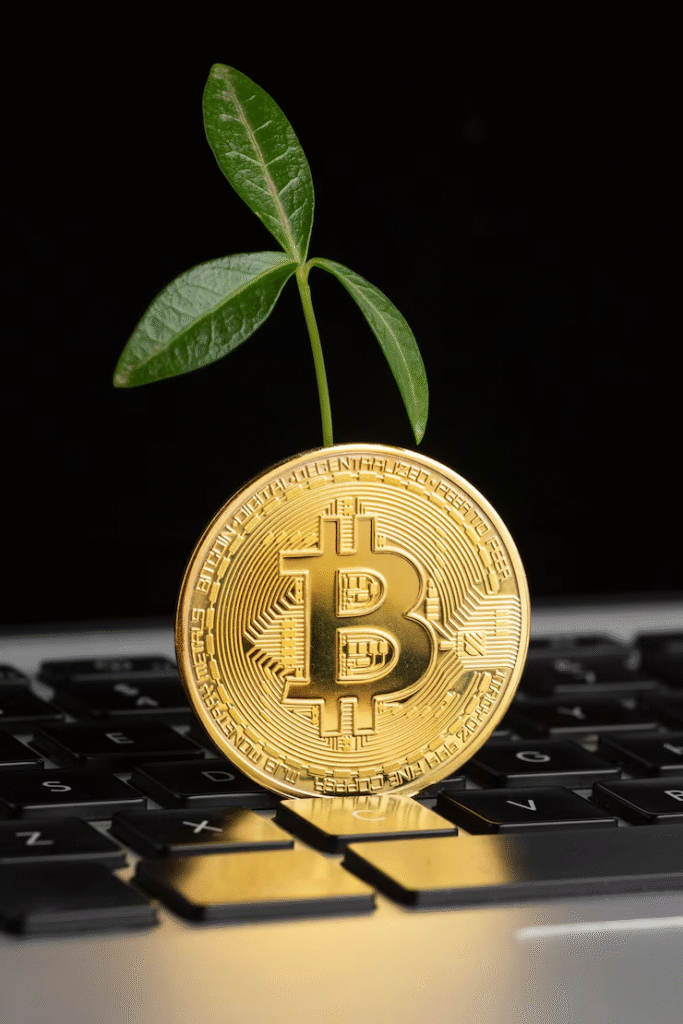Cryptocurrency has become a buzzword in the world of finance and technology. But what is cryptocurrency, and why is it so popular? This beginner-friendly guide explains it all, step by step.

Table of Contents
Step 1: Understand the Basic Definition of Cryptocurrency
Cryptocurrency is a type of digital or virtual currency that uses cryptography for security. Unlike traditional currencies (like the Indian Rupee or US Dollar), cryptocurrencies are decentralized and operate on a technology called blockchain.
- ✅ Digital-only: Exists on computers and networks
- ✅ Encrypted: Uses cryptographic techniques for security
- ✅ Decentralized: No central bank or authority controls it
Popular examples: Bitcoin, Ethereum, Solana, Ripple (XRP)
Step 2: Know the Role of Blockchain Technology
A blockchain is a public, digital ledger where all cryptocurrency transactions are recorded.
Key Features:
- Immutable: Once added, records cannot be changed
- Distributed: Copies exist on thousands of computers worldwide
- Transparent: Anyone can view transactions (public blockchain)
So, blockchain makes cryptocurrency secure, tamper-proof, and trustless (no need to trust any one party).
Step 3: How Does Cryptocurrency Work?
Cryptocurrency works through a network of nodes (computers) that validate and record transactions using cryptographic algorithms.
Here’s how it works:
- You request a transaction (e.g., sending Bitcoin).
- The network validates the transaction using miners or validators.
- The transaction is added to a block.
- The block is added to the blockchain.
- The transaction is complete!
This process is called consensus (common types: Proof of Work, Proof of Stake).
Step 4: What Is a Crypto Wallet?
To store and use cryptocurrencies, you need a crypto wallet. Think of it like a digital bank account.
There are two main types:
- Hot Wallets: Online and easy to access (e.g., apps, browser extensions)
- Cold Wallets: Offline, more secure (e.g., USB-like hardware devices)
Your wallet contains private keys and public keys:
- Private key: Your password to access your crypto (never share!)
- Public key: Like your account number for receiving payments
Step 5: Why Do People Use Cryptocurrency?
People use cryptocurrencies for different reasons:
Fast & Cheap Transactions
Send money across the world in minutes with low fees.
Privacy & Security
No need to reveal personal info like in traditional banking.
Global Access
Anyone with internet can access and use crypto.
Investment Opportunities
Many see crypto as a new asset class with potential high returns.
Step 6: Popular Cryptocurrencies in 2025
Here are some well-known cryptocurrencies as of 2025:
| Cryptocurrency | Symbol | Primary Use |
|---|---|---|
| Bitcoin | BTC | Store of Value |
| Ethereum | ETH | Smart Contracts |
| Solana | SOL | Fast DApps & DeFi |
| Binance Coin | BNB | Exchange Utility |
| Ripple | XRP | Cross-border Payments |
Step 7: Is Cryptocurrency Legal?
The legality of cryptocurrency depends on the country:
- 🇮🇳 India: Legal, but regulated. Profits are taxed.
- 🇺🇸 USA: Legal, under regulatory frameworks.
- 🇨🇳 China: Mostly banned.
- Other countries: Varying rules—some friendly, some strict.
Always check your country’s latest laws.
Step 8: Is Cryptocurrency Safe?
Cryptocurrencies are technologically secure, but risks exist:
Risks:
- ❌ Market volatility (prices go up & down fast)
- ❌ Scams, phishing, rug pulls
- ❌ Losing access to your private keys = losing your crypto
Tips:
- Use reputable exchanges and wallets
- Enable 2FA (two-factor authentication)
- Never share your private keys
Step 9: How to Get Started With Cryptocurrency
Here’s a beginner-friendly roadmap:
- Learn about how it works (reading guides like this!)
- Create a wallet (MetaMask, Trust Wallet, etc.)
- Buy crypto from a trusted exchange (Coinbase, Binance, CoinDCX)
- Store safely and avoid sharing sensitive info
- Keep learning before investing large amounts
Step 10: The Future of Cryptocurrency
Cryptocurrency is more than just digital money—it’s the future of:
- Finance (DeFi, remittances)
- Gaming (Play-to-earn, NFTs)
- Internet (Web3, decentralized apps)
- Governance (DAO, decentralized voting)
As blockchain adoption grows, cryptocurrency will likely become more integrated into daily life.
FAQs – What People Ask
Q1: Can I buy cryptocurrency in India?
Yes, via platforms like WazirX, CoinDCX, and Binance.
Q2: Is cryptocurrency taxed in India?
Yes, profits are taxed at 30% under Indian tax rules.
Q3: Is Bitcoin real money?
Yes, Bitcoin is digital money accepted by many people and businesses globally.
Q4: Can I lose my cryptocurrency?
Yes, if you lose your private key or send it to the wrong address.
Final thought: Why You Should Care About Cryptocurrency
Cryptocurrency is changing the way people save, spend, and invest. Whether you’re a student, tech enthusiast, investor, or just curious, it’s important to understand what cryptocurrency is and how it’s shaping the future.